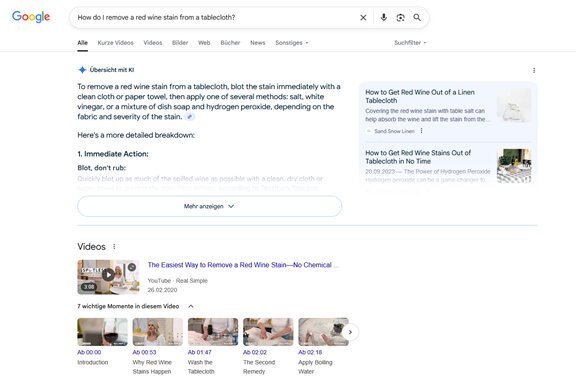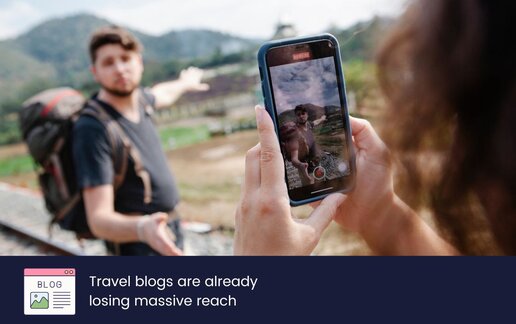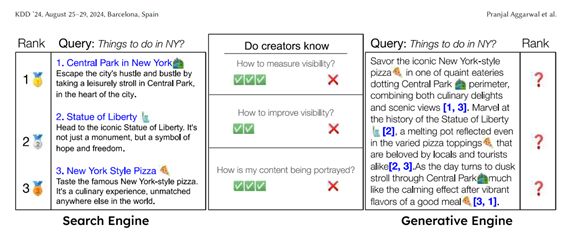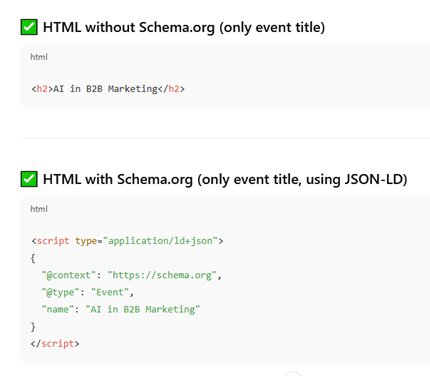

 Favorite (2)
Favorite (2)
While Google remains the dominant search engine, AI-supported systems are changing how information is found and consumed online. Instead of traditional link lists, AI search tools deliver structured answers in text format—often without naming the original content providers. The term 'zero-click search' refers to this phenomenon: users receive direct answers without needing to click, which significantly reduces organic traffic to websites.
In the past, a question like “How do I remove a red wine stain from a tablecloth?” would produce ads and a wide range of organic results. Today, Google's AI answers this question directly, often without linking to external sites.
A screenshot from July 25, 2025, shows that on desktop, users may still see twos ads and some videos —if the AI summary isn’t expanded. On mobile devices, however, the AI response typically dominates the screen.


Business journalist Holger Schmidt referred to this as an 'exodus of Google traffic' in the German FAZ. Industries like travel, home design, and cooking are seeing large drops in web visits despite continued search interest. When a user searches 'What can I do in New York?', the AI provides a personalized response without referencing the original sources—costing content creators their reach and relevance.

For small and mid-sized enterprises, especially in B2B, this development must not be underestimated. However, there’s no need to panic: traditional SEO still has value—particularly for complex, explanatory products and services. Where reflection and comparison are needed, users will still turn to trusted websites. The convenience of AI search may suffice for simple questions, but not for decisions involving high-value or technical purchases.
AI search marks a paradigm shift. While Google rankings can be influenced through SEO, AI systems generate content probabilistically—drawing from patterns in data rather than direct retrieval. It remains unclear whether there’s any correlation between high Google rankings and inclusion in AI-generated responses. Even lesser-known pages might be cited prominently.
At the 8th DigitalMarketingDay at Hamm-Lippstadt University of Applied Sciences, students introduced current AI search tools like Perplexity.ai. Several companies were surprised to discover they had little or no visibility in these systems.
Concepts like Generative AI Optimization (GAIO), Large Language Model Optimization (LLMO), and Generative Engine Optimization (GEO) are being discussed, especially on LinkedIn. However, no uniform standard has emerged, and there are no clear recipes for success—change is happening too fast. Nonetheless, some key practices are becoming visible.
Fortunately, traditional SEO practices remain useful. Google emphasizes E-E-A-T (Experience, Expertise, Authoritativeness, Trustworthiness) as quality criteria. Well-structured, relevant content continues to be essential. Companies with a strong SEO foundation are well-positioned to adapt.
What’s new is the need to appear in AI answers—either directly or as cited sources. Classic metrics like keywords and click-through rates matter less now. Instead, businesses should focus on:
AI systems process websites differently from traditional search engines. They often struggle with dynamically loaded content, so all relevant information should be visible without interaction. Text, images, and videos are all analyzed—often in isolated segments. Therefore, it's crucial to create standalone blocks of content that align closely with common user questions.

Businesses should routinely check their own visibility using different AI search engines. Recommended tools include:
The future of search is unfolding now. Businesses that adapt early and optimize their visibility in AI-generated results can gain a competitive edge. Leading platforms like Google and OpenAI will eventually monetize these services, and the effects on discoverability remain unclear. However, now is the ideal time to invest in structured, high-quality content and technical readiness for the next generation of search.
This translation was generated with the help of AI. Please find the German Article here.